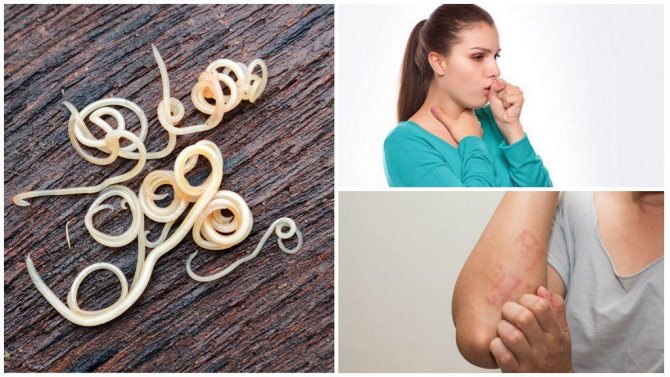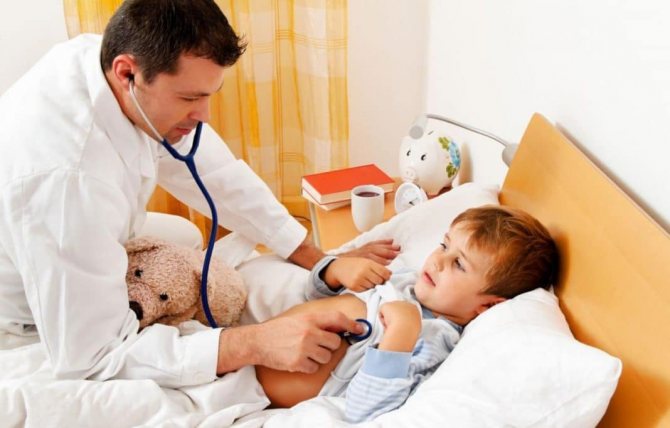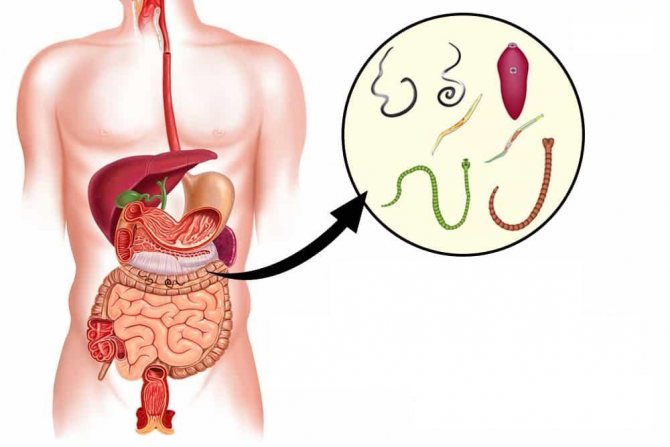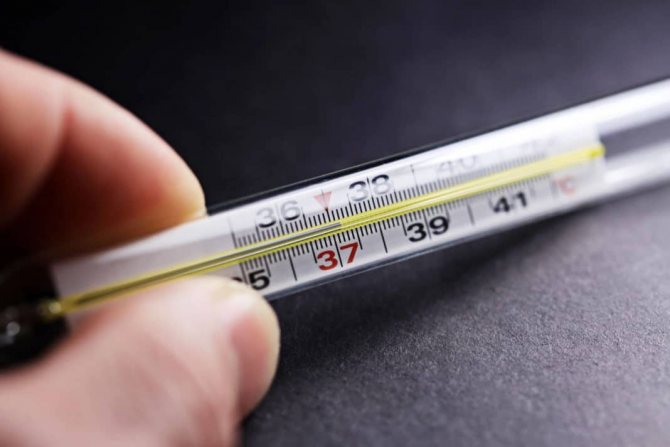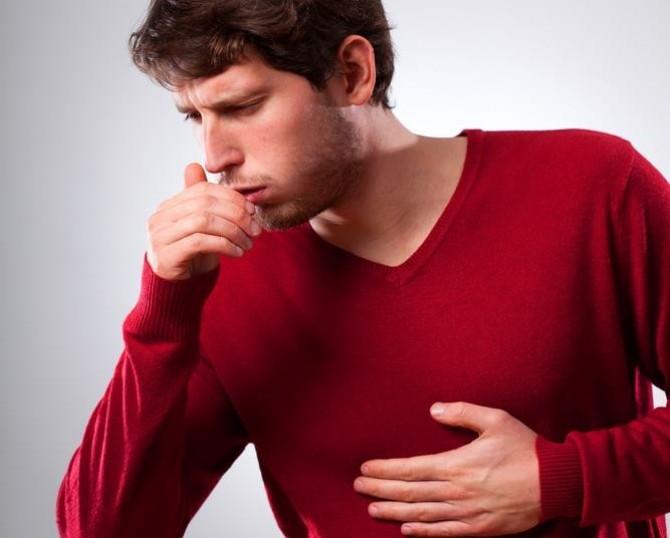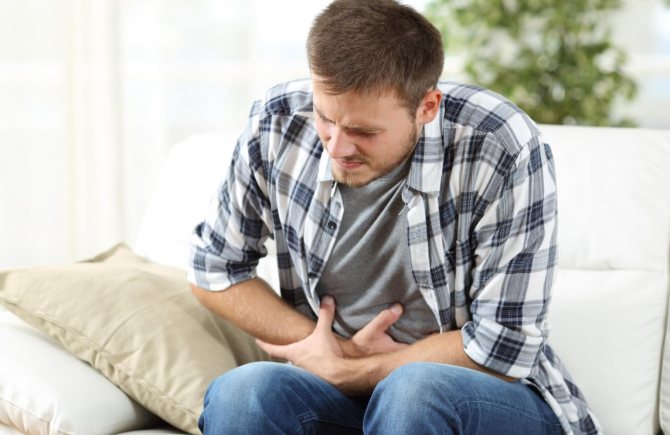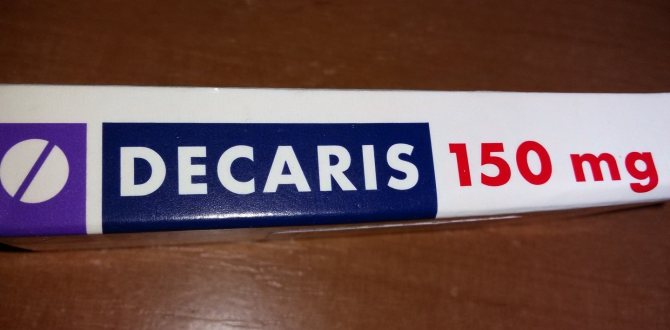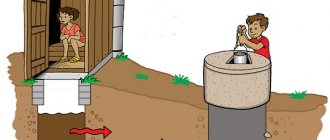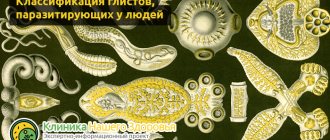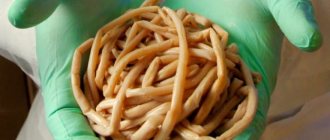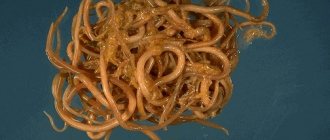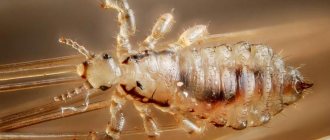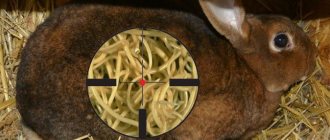Cough
Share this
- The connection between coughs and worms
- Features of ascariasis
- Development of giardiasis
- Features of paragonimiasis
- General symptoms
When a cough from worms is fixed, the symptoms indicate problems in the respiratory system. Only at first glance it seems that helminthiasis and the cough reflex are completely incompatible concepts.
In fact, there are a number of helminths that can provoke a cough, and there is a completely objective explanation for this. A cough caused by worms is more often found in children, but this problem is not bypassed by adults either.
Interconnection
The appearance of a symptom such as a cough with helminthic invasion can be due to two mechanisms. These include:
- direct irritant effects of parasites on the respiratory tract and lungs;
- sensitization of the body to toxins or decay products of helminths.
The first mechanism is the main reason, which causes a cough with worms, a purely allergic reaction is less common, mainly in children.
The attention of parents should be attracted by a prolonged cough in a child, which bothers not only in the morning, but also throughout the day, while the usual treatment gives only a short-term positive effect.
However, it is possible to distinguish a cough with worms in children or adults from a common cold only after a laboratory examination of the patient's feces, blood or sputum. Treatment will depend on the species of the parasite. Which worms cause coughing most often:
- Ascariasis - these worms make their way into the body through contaminated food, water, unwashed vegetables, herbs, berries.
- Trichinosis - a person becomes infected by eating insufficiently heat-treated animal meat.
- Strongyloidiasis - larvae penetrate the skin when walking barefoot on contaminated land.
- Toxocariasis - for these parasites, a person is a temporary host and becomes infected by contact with dogs or earth (sand), which contains eggs of worms.
- Opisthorchiasis - a worm called a cat's fluke, enters the body through poorly fried river fish.
- Schistosomiasis - the larvae of these flukes are introduced into the skin or mucous membranes of a person when swimming in stagnant bodies of water.
- Paragonimiasis - lovers of poorly cooked crayfish become infected with lung flukes.
- Echinococcosis (alveococcosis) - in the human body, the larvae find themselves through berries, vegetables and water infected with eggs, as well as when caring for pets.
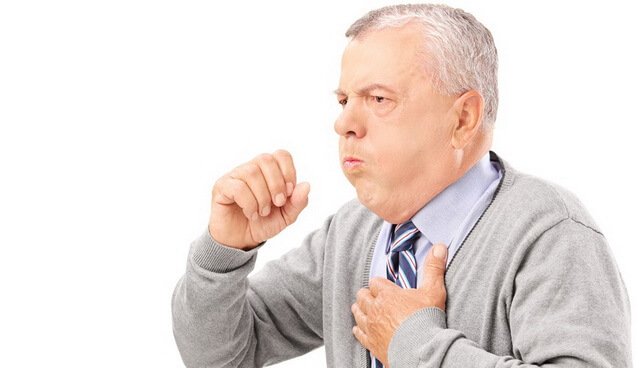
Signs of infection
Symptoms of helminthic invasion largely depend on the individual characteristics of the patient (the physical condition of the child) and the type of parasites. Fluke worms, round nematodes or flat nematodes are the most common causes of coughing. It is not difficult to catch the disease - it is enough not to wash your hands after a public toilet, play with a pet, or eat unwashed vegetables and fruits.
The first signs of helminthiasis in children:
- a sharp change in appetite (constant desire to eat or, conversely, refusal to eat);
- abnormal salivation, accompanied by nausea, vomiting;
- the appearance of allergic reactions to familiar products or household chemicals;
- frequent acute respiratory viral infections, acute respiratory infections (cough from worms can be the result of a sharp drop in immunity);
- deterioration of hair and nails.
It is recommended to take blood, urine and feces tests in case of unmotivated aggression and delay in the development of the child. Worms negatively affect the nervous system, provoking mood swings, coughing and fever, which are not amenable to pharmacotherapy.
Hemoptysis is considered a dangerous manifestation of the disease. If a child has purulent streaks in the mucus, an urgent chest X-ray is necessary. Most likely, the worms violated the integrity of the tissues and caused an inflammatory process. This cough must be eliminated as soon as possible.
Features of the
Cough in children is most often caused by roundworms. The eggs of these worms in the intestine shed their shell, turn into larvae, which pierce the wall of the small intestine, with blood they enter the right heart and lungs. Irritation of the respiratory system makes people cough. Then, with sputum, the larvae end up in the oral cavity and are swallowed back into the stomach and intestines, where they are transformed into adults. This means that with ascariasis, coughing is a temporary symptom caused by the larval stage of parasites. However, it can become protracted with repeated infections in children or adults. In a similar scenario, a cough occurs with a parasite called intestinal acne.
Much more serious symptoms are the involvement of the lungs with trematodes known as pulmonary flukes. These worms, which cause coughing, parasitize the lung tissue with the formation of infiltrates and cavities filled with dead cells and the decay products of helminths. With paragonimiasis, there will be a chronic cough with the discharge of sputum, colored brown from the eggs of the worms. If there is hemoptysis with a worm cough, the symptoms may be mistaken for tuberculosis. If there is no treatment, then the pulmonary fluke can live up to two decades.
Echinococcus and alveococcus have the most destructive effect on the human body, in particular on the pulmonary parenchyma. From parasites of this type, cysts are formed in various internal organs of a person - cavities covered with a membrane with a liquid content inside. When they exist for many years, they cause strong allergic reactions in the body and lead to the destruction of the organs in which they are located (for example, the lungs). At first, there is a coughing with the addition of a dry cough from worms that have invaded the lungs, then shortness of breath and hemoptysis occurs when tissue and blood vessels are destroyed.
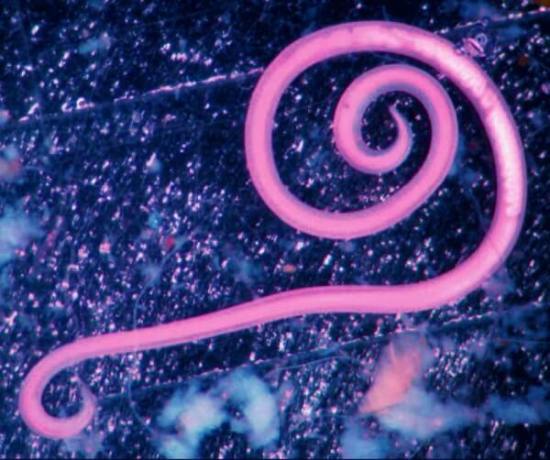

An example of a mixed mechanism for the onset of cough is toxocariasis, the child is most often at risk of contracting these worms while playing in the sandbox. Toxocara larvae migrate through the body, especially like to settle in the lungs, liver and eyes, where they cause necrosis and inflammation. In addition, the immune system reacts to them with the production of antibodies, which provokes the development of allergic symptoms (asthma attacks, cough, rash).
Which exit
At first glance, it is very difficult to determine the nature of a cough in a child or an adult.
A cough caused by parasites differs from a common cold in persistence, severity throughout the day, as well as the duration of the course.
Treatment with the means adopted in such cases gives a temporary result. When diagnosing, the data of the epidemiological history are usually taken into account - the stay of a child or an adult in foci of increased incidence of echinococcosis, communication with animals without adult supervision. To be able to get infected, it is not even necessary to travel outside their own yard, if children constantly play in the sandboxes, where they find animal excrement.
How do worms cause a cough?
The question of whether worms can be the cause of coughing has only one definite answer - yes.
The appearance of worms and coughing are closely interrelated, since many types of parasites are able to cause this reaction of the respiratory organ by getting into it during migration or by choosing the lungs as a home.
There are two options for the appearance of an ailment:
- During invasion, some types of worms, having entered the body along with the bloodstream, are carried through the internal organs, including entering the lungs. Once in the respiratory tract, they interfere with the passage of air and can cause a dry cough, while spreading the smallest eggs of worms. But small helminths can also cause an inflammatory process in the lungs and then a small amount of sputum will be released. Feeding on blood components and microparticles of mucous membranes and releasing toxins, they cause allergic reactions. Some of the worms that got into the lungs during migration fall into an inert state, some leave the body with a cough, the rest return to the intestines.
- Another variant of the appearance can be caused by such types of parasites as pulmonary flukes or pulmonary fluke and toxocara. In this case, the place of localization of parasites is the lungs, which are directly influenced by them. This type of helminths causes serious diseases, destroys the cells of the organ. The cough becomes moist and even bloody.
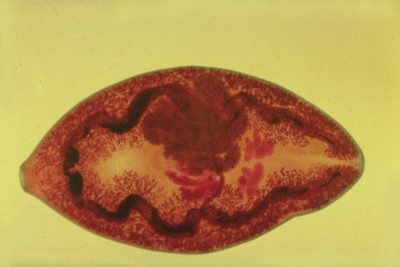

The clinical picture of helminthic invasion will depend on which worms infect a person.
Prevention of parasitic invasions
In order not to catch worms and coughs, you need to adhere to the following rules:
- Maintain personal hygiene.
- Wash vegetables and fruits thoroughly before eating.
- Bring meat and fish to readiness.
- Do not drink raw milk.
- Get rid of flies - they are carriers of eggs and larvae of parasites.
- Drink boiled water.
- Carry out wet cleaning regularly.
Preventive use of anthelmintic drugs is necessary for people with pets, young children after summer games in the sandbox, those who like to swim in ponds and eat unprocessed foods.
Ascariasis and cough
Ascariasis is one of the most common parasitic diseases, especially among children. With the consumption of dirty products and non-observance of the rules of hygiene, roundworms settle in the child's body less often than an adult. The main site of localization of worms is the small intestine, through the walls of which the larvae penetrate into the blood vessels. Then they enter the heart, liver and lungs, and then the relationship of parasites and coughs is clearly traced. From the capillaries, the larvae continue to migrate to the end parts of the respiratory apparatus (alveoli) rise higher, bypassing the trachea, pass the larynx and enter the pharynx. When swallowed with saliva, the larvae again end up in the upper part of the gastrointestinal tract. Such a "journey" lasts on average 2-3 weeks.
As a result, the body reacts with a coughing fit. If the disease is not treated, then the harmful activity of the worms increases, they damage the smallest vessels, so traces of blood may appear in the sputum. In more rare cases, with massive invasion, single foci of inflammation are formed on one or both lungs.
Outwardly, the presence of worms in the lungs is manifested by blue lips and pallor of the skin.
Cough and pulmonary fluke
Cough from worms can occur with a disease such as paragonimiasis. When swimming in an open reservoir and accidentally swallowing water or when eating fish, crayfish that have not undergone proper processing (cooking, salting, drying), a person at any age can become infected with pulmonary fluke. The nematoda is shaped like a coffee bean. It has an oval body, the average length of which is 1.2 cm, width - 0.7 cm. With two suction cups located on the head and belly, the parasite is attached to the epithelium.
The first place where fluke larvae fall is the duodenum. Here they release the membranes and begin to migrate to the lungs. On the way, they pierce the intestinal wall, diaphragm, and serous membranes of the lung.In the place where the lung connects with other organs and along the peripheral zones, nematodes form tumors (cysts) with a fibrous membrane, the size of which can reach 10 cm.There are 1 less often 2 parasites inside the hollow cyst, and over time the cavity is filled with turbid mucus. After 1.5 months, the nematodes become sexually mature and begin to lay eggs.
This fluke worm and its eggs are localized in the lung tissue, destroy it with mechanical damage and products of their vital activity, which leads to atrophy and inflammation. Over time, the tissue changes, grows, and scars form.
Also, with paragonimiasis, hemorrhages are formed, a mixture of blood and lymph accumulates in the lungs. If the fluke leaves its cyst, then it can end up in any other organ and even the brain.
As a result of pathological processes at an early stage, symptoms of inflammation of the small intestine, hepatitis appear. Then a cough with sputum begins, and with a massive invasion and with an advanced form of the disease, traces of blood are found in the sputum secreted with a cough. Shortness of breath begins, chest pains. X-rays can reveal signs of pleurisy.
be careful
According to statistics, more than 1 billion people are infected with parasites. You may not even suspect that you have become a victim of parasites.
It is easy to determine the presence of parasites in the body by one symptom - bad breath. Ask loved ones if your breath smells in the morning (before you brush your teeth). If so, there is a 99% chance that you are infected with parasites.
In men
parasites cause: prostatitis, impotence, adenoma, cystitis, sand, kidney and bladder stones.
Among women
: pain and inflammation of the ovaries. Fibroma, fibroids, fibrocystic mastopathy, inflammation of the adrenal glands, bladder and kidneys develop. As well as heart and cancer.
We want to warn you right away that you do not need to run to the pharmacy and buy expensive medicines, which, according to pharmacists, will exterminate all parasites. Most drugs are extremely ineffective, and they also cause tremendous harm to the body.
What to do?
To begin with, we advise you to read an article from the main institute of parasitology of the Russian Federation. This article reveals a method by which you can cleanse your body of parasites without harm to the body. Read the article >>>
Before starting treatment for a cough in a child, you should find out the true cause of this symptom. General diagnostics involves testing for the presence of parasites in the child's body. The way of determining the worms that interfere with a full life depends on the life cycle of the nematode. Could the symptoms of a cough indicate the presence of helminths? The connection between an atypical symptom and worms is due to only two reasons:
- Individuals and larvae of parasites migrate to the lungs. Roundworms and giardia, for which the intestines are their usual habitat, in the process of active reproduction infect the heart and organs of the respiratory system. The blood and lymph of the child serve as food for the parasites, so the waste products of helminths often enter the bloodstream. Having reached the lungs, the worms partially leave the body with sputum, but most of them migrate back to the intestines. The remaining parasites provoke new attacks. In the case of toxocariasis, the reproduction of parasites is accompanied by the occurrence of severe lung diseases in the child. Violation of the integrity of the lung tissue leads to the appearance of bloody discharge.
- Foci of invasion in the lungs. The root cause of cough is the development of paragonimiasis. The disease, which inhibits the function of the lungs, gradually leads to perforation of their walls. It is necessary to treat paragonimiasis as soon as the diagnosis is made (in order to avoid serious consequences for the body).
Along with coughing or sputum discharge, the child has other symptoms associated with the reproduction of parasites. Bluish lips and pale skin are signs that one of the types of dangerous worms has affected children's lungs or the walls of the bronchi. Without timely treatment, the vessels in the body may suffer, which will lead to respiratory failure. It is always easier to treat a disease in the early stages than to deal with its advanced forms. Even minor symptoms, similar to the manifestation of a simple cold, should cause concern.
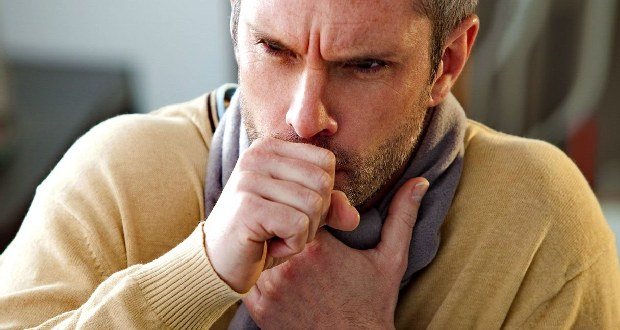

What types of worms cause coughing?
In addition to the above types of helminths, there are other parasites that cause coughing. So toxocars, penetrating into a person, are able to provoke an allergic reaction, which is manifested by a cough, and massive invasion threatens bronchial asthma.
But the greatest danger to health is posed by the larvae of echinococcus, which cause various types of echinococcosis, which are characterized by the formation of cysts in the lungs and other organs. Sexually mature individuals do not live in humans. The larvae form oval-shaped cysts that are filled with fluid. Cysts put pressure on adjacent tissues and thus cause pain in the chest, at first a slight coughing and then coughing up phlegm. With an advanced pathological process, the cyst can grow so that the chest deforms. Also, an echinococcus cyst can break through, and the fluid enters the bronchi, causing coughing fits with a large amount of sputum and blood impurities.
The owner of echinococci are canids. A person becomes infected by contact with a sick animal.
There are other types of worms that, when migrating through the body and entering the lungs, cause coughing, spasms in the bronchi, and as a result of their vital activity, symptoms of pneumonia and other diseases appear.
Measures to eliminate cough
It is important to understand that a cough caused by worms is only a symptom of the disease, but not the disease itself. Therefore, it is not necessary to treat a cough, but to eliminate the cause that caused it. To do this, you need to consult a doctor, since only he will be able to help establish a diagnosis, take tests for helminths and follow the treatment regimen that was prescribed in a medical institution.
A neglected ailment can turn into bronchial asthma for a person, the appearance of allergies, asphyxia and a number of pulmonary diseases.
Worm infestation has traditionally been associated with bowel dysfunction. People know that unwashed hands and insufficiently cooked food are risk factors for infection with parasitic worms. Cough with worms is a minor symptom that indirectly indicates a possible infection. To verify the cause of the corresponding symptom and make a final diagnosis, specialized procedures are required.
Additional symptoms
Not everyone knows how to recognize a cough from worms. Even experienced doctors do not immediately make the correct diagnosis, since the clinical manifestations are similar to those of ARVI. Cough from parasites is of an episodic nature, associated with the duration of the life cycle of the worms. When they are actively multiplying, the cough intensifies, becomes constant, especially at night.
Symptoms in children are more pronounced, since the airways have a smaller diameter, and the immune system is unable to suppress the inflammatory process. But coughing isn't the only sign of parasites. There are other symptoms due to intoxication:
- slight hyperthermia;
- labored breathing;
- pallor of the skin, bruises under the eyes;
- decreased appetite;
- rapid weight loss;
- sleep disturbance;
- teeth grinding in sleep;
- increased fatigue;
- nausea, vomiting.


Symptoms in adults are similar, but more often additional signs are observed: outbursts of anger, headaches, skin rashes, and decreased mental performance.
Cough with worms is often combined with invasion in other organs.Particularly dangerous is the damage to the central nervous system, accompanied by visual dysfunctions, seizures, movement disorders and other neurological disorders.
Can worms cause coughing?
The relationship between coughs and worms is not obvious to most people who do not study this issue deeply. At school, children are taught not to eat unwashed fruits and vegetables due to the risk of contracting worms with subsequent abdominal pain, diarrhea, and the like.
However, there are helminths that can cause atypical manifestations. Cough from worms, symptoms of respiratory failure, dysfunction of the central nervous system are signs of a possible damage to the body by worms.
The occurrence of the corresponding pathological reactions is associated with the peculiarities of the development of parasites. The clinical picture is characterized by episodicity, which coincides with the life cycle of the worm. An increase in cough, symptoms of dysfunction of the respiratory system indicates the presence of a face or an adult worm in the lungs, bronchi, trachea.
What worms cause cough?
Worms are a collective concept that is used to denote various types of parasites that penetrate the patient's body and cause corresponding disorders of the body's functions. Representatives of round worms, tapeworms, trematodes (flukes) remain relevant for medicine.
The following types can provoke a cough:
- Intestinal acne. The name of the parasite suggests that the main habitat of the worm is the gastrointestinal tract. The patient will cough only during a certain period of the life cycle of the acne, when, after penetrating the skin, it enters the vessels. With blood, the parasite migrates to the lungs, trachea and pharynx. After the specified path, the person swallows the parasite, which continues to develop in the digestive tract. While in the respiratory tract, the worm can cause coughing with weak sputum discharge;
- Ascaris. A typical roundworm that causes cough in 75% of patients. The reason is penetration into the lungs and airways during its development. The worm enters the patient's intestines with unwashed food. After that, it penetrates into the vessels, migrates with blood to the heart, lungs, pharynx, where the worm is re-swallowed. Cough against the background of ascariasis gives the patient a lot of discomfort. Blood streaks can be found in sputum due to mechanical damage to the mucous membrane of the respiratory tract;
Bibliography
- Centers for Disease Controland Prevention. Brucellosis. Parasites. Link
- Corbel M. J. Parasitic diseases // World Health Organization. Link
- Young E. J. Best matches for intestinal parasites // Clinical Infectious Diseases. - 1995. Vol. 21. - P. 283-290. Link
- Yushchuk ND, Vengerov Yu. A. Infectious diseases: textbook. - 2nd edition. - M .: Medicine, 2003 .-- 544 p.
- The prevalence of parasitic diseases among the population, 2009 / Kokolova L.M., Reshetnikov A.D., Platonov T.A., Verkhovtseva L.A.
- Helminths of domestic carnivores of the Voronezh region, 2011 / Nikulin P.I., Romashov B.V.
An article for patients with a disease diagnosed by a doctor. Does not replace a doctor's appointment and cannot be used for self-diagnosis.


The best stories from our readers
Subject: Parasites are to blame for all the troubles!
From whom: ()
To whom: Administration
Not so long ago, my health condition deteriorated. I began to feel constant fatigue, headaches, laziness and some kind of endless apathy appeared. There were also problems with the gastrointestinal tract: bloating, diarrhea, pain and bad breath.
I thought it was due to hard work and hoped it would go away on its own. But every day I got worse. The doctors, too, could not really say anything. Everything seems to be normal, but I somehow feel that my body is not healthy.
I decided to go to a private clinic. Here I was advised, along with general tests, to be tested for parasites.So, in one of the analyzes, parasites were found in me. According to doctors, these were worms that 90% of people have and almost everyone is infected, to a greater or lesser extent.
I was prescribed a course of antiparasitic drugs. But this did not give me results. A week later, a friend sent me a link to an article where some parasitologist shared real advice on combating parasites. This article literally saved my life. I followed all the tips that were there and after a couple of days I felt much better!
Digestion improved, headaches disappeared and that vital energy appeared, which I so lacked. For reliability, I passed the tests again and did not find any parasites!
Who wants to cleanse their body of parasites, and it doesn't matter what types of these creatures live in you - read this article, I'm sure it will help you 100%! Go to article >>>
Still have questions? Ask them in our Anonymous group in VK
How to get rid of parasites in a week. The answer is here!
A reliable and effective remedy for the fight against worms. Removes all parasites in 21 days.
Go to the site
Testimonials
Read online
Symptoms that are 100% indicative of parasites! Pass the Test.
How to rid your body of life-threatening parasites before it's too late!
Read more
Website
To get the consultation
The doctor tells how to quickly get rid of parasites for adults and children!
The parasitologist tells what effective methods of dealing with helminths exist.
More details
Read completely
Comments (1)
Finding cures for parasites
Other tests
We advise you to read


Is it possible to get scabies from a cat, prevention of infection
3 days ago 08.03.202008.03.2020ecoliv94
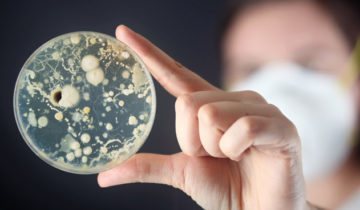

Can only one partner have ureaplasma and is there a chance of getting sick
4 days ago 08.03.202008.03.2020ecoliv94
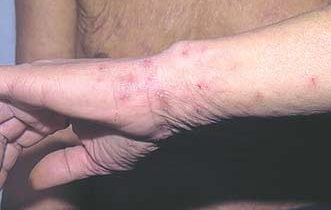

How long does itchiness last after scabies treatment and what to do about it?
4 days ago 08.03.202008.03.2020ecoliv94
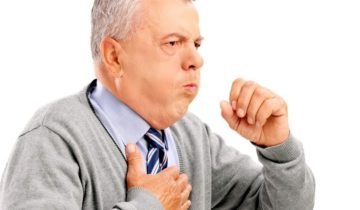

Can worms come out through a person's mouth when it can happen
01.02.202001.02.2020ecoliv94
Diagnostics
Diagnosis of the cause of cough is the key to successful treatment. When a symptom occurs against the background of helminthic invasion, traditional methods of auscultation and radiography provide insufficient information content. In parallel with the assessment of complaints, taking anamnesis and examining the patient the following activities are carried out:
- Microscopic examination of feces in order to detect worm eggs;
- Ultrasound of the abdominal organs;
- General and biochemical blood test. Doctors pay attention to an increase in the number of eosinophils, which indirectly indicates the presence of worms;
- Serological methods of blood tests with the detection of an increased concentration of antibodies to specific parasites;
- CT, bronchoscopy - auxiliary techniques used when other methods of detecting the cause of cough are ineffective.
Treatment of cough with worms
It is pointless to treat a cough provoked by worms using traditional drugs. The reason is the ineffectiveness of the funds due to the development of worms in the body, which are insensitive to expectorant or antitussive drugs.
Medication
Medications used to eliminate worms:
- Mebendazole (Vermox, Mebex);
- Albendazole (Vormil);
- Carbendacim;
- Levamisole (Decaris);
- Pirantel (Helmintox);
- Praziquantel;
- Bithionol and Chloxil.
How to remove parasites from the body at home?
Popular methods:
- Daily consumption of 20-30 g of peeled pumpkin seeds. There is a mechanical cleaning of the intestines from worms. However, this method does not affect parasites temporarily residing in the respiratory tract;
- 15 g of chopped dry wormwood is poured with 300 ml of boiling water. After 10 minutes, the liquid is filtered and cooled. It is recommended to use the solution 15 ml 3 times a day before meals.
All traditional methods of eliminating worms are aimed at parasites in the intestines. Cough therapy with appropriate prescriptions is ineffective.
Complications
Worms can cause coughing, which is complicated if not treated properly.
Prophylaxis
Prevention of cough caused by the penetration of worms into the body is based on the observance of the rules of personal hygiene.
Additionally, you must remember the following points:
- adequate heat treatment of food;
- the use of purified water, fruits, vegetables;
- refraining from swimming in open water;
- regular medical examinations;
- timely treatment of helminthiasis when they occur;
- deworming of pets.
Preventive actions
You can not be negligent about your health. Infection with parasites can provoke dangerous complications. In case of untimely seeking help or inadequate treatment, the risk of malnutrition, respiratory failure, the appearance of edema, abscesses in the lungs significantly increases. Hemoptysis during coughing is considered a bad sign (this means that the worms have damaged the lung tissue).
Fortunately, in most cases, the prognosis of therapy is favorable. It is even easier to prevent infection. Prevention is reduced to the correct processing of food, preventive treatment of pets (deworming). People working with animals (veterinarians, agriculture) are recommended to take tests and undergo a comprehensive examination 2 times a year.

